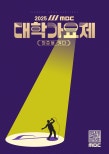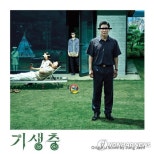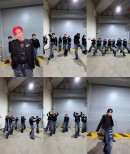By Sam Dougherty (@samtdougherty)
Producer Pishu, formerly known as Piano Shoegazer, has transformed his musical identity with the release of his vibrant new EP Birds, Promises, Moonlights. Blending nostalgic video game soundscapes with innovative production techniques, the versatile artist has carved a unique space between indie music genres while mentoring over 200 aspiring musicians.
Pishu spends approximately four times as much time in his studio as he does in his own home. This fact didn't surprise me after meeting him in his musical workspace on a pleasant spring afternoon. "I don't go outside very much," he admits with a smile.
A natural pianist since age seven, Pishu developed his production skills by designing music for rhythm games in his youth, and later by creating precise reproductions of songs he admired. He has refined this ability to the point where he demonstrated a cover so accurate it convinced Shazam it was the original. "I started gathering people by replicating other musicians' sounds. I told them I could produce their sound, and they could visit my studio to learn about the process."
A self-described perfectionist in mixing and production, Pishu has collaborated with innovative musicians including Nokenok, Han Jung In, Jang Myung Sun, and Kimbanourke. "My motto last year was 'I help musicians.' Most Korean music education focuses on producing K-pop, classical, or mainstream pop music, so I recognised the need to teach people about producing different genres."

The precise genre of his own music is difficult to categorise, yet consistently impressive. His earliest Soundcloud releases date back a decade and range from lo-fi piano improvisations to the intricately produced "Ghostly Love," which has accumulated over 3,000,000 plays. Pishu has a complex relationship with the "prettiness" of this track, and this "punk versus pretty" dynamic may explain why he avoids commitment to any single genre, with elements of ambient, jazz, classical, shoegaze, and intelligent dance music (IDM) appearing throughout his catalogue.
While seeking inspiration in a post-COVID world, Pishu struggled with releasing new material. "I had no confidence in my music. Things were very challenging. I injured my wrist due to a translation job, and the economic situation was difficult." He eventually quit that job, started teaching, and formed friendships with many musicians. "My friend Kirara advised me to set aside everything for a week, go to my studio, and focus exclusively on making music. I followed that advice, created three tracks, and began developing an album."

This became his first album, Sisyphus Happy, released in 2023 under the Piano Shoegazer name. "Sisyphus represented my process of creating the album, earning income, teaching, and connecting with people." The album exemplifies the "Piano Shoegazer" moniker, featuring immersive walls of sound complemented by delicate keyboard notes that guide listeners back to clarity.
In 2024 came Ghostly Love Stories, a project that Pishu doesn't consider a formal album but jokingly refers to as his "One Wayne G," alluding to Mac DeMarco's release of 200 demos. These 24 tracks explore a wide spectrum of the Shoegazer era and present a softer counterpoint to Sisyphus. Here, Pishu sets aside his meticulous mixing tendencies in favour of embracing a DIY spirit. "I felt the Soundcloud version had more authenticity. The memory was more important than the sound quality."

This brings us to his latest project. The new EP is titled Birds, Promises, Moonlights, and the title itself reflects the artist's evolving mindset. "The original title was Birds, Promises, Modulators," he explains, but he changed it because I thought, 'stop acting like a nerd!' I want to be an artist and communicate with people."
This inclination toward clarity perhaps comes with maturity. Birds, Promises, Moonlights is musically complex, but it represents a bright and peaceful thematic shift significant enough to warrant the name change from Piano Shoegazer to Pishu. "I have a profound appreciation for shoegaze and punk culture, but I believe I'm not 'shoegazing' anymore. So I changed my name."

The inspiration for this album is "90s and 2000s game culture, and my band sound now has less distortion. I prefer incorporating acoustic sounds these days." For Pishu, The Legend of Zelda series was most influential, and he was inspired by the collective fondness for this era. "Everyone misses this period. It's fascinating that whether you're in your 20s, 30s, 40s, or 50s, they all miss this style."
He thoroughly researched the tools used to compose game music, including equipment found in old Korean karaoke rooms and the DX7 synthesiser, popularised by 80s artists like Prince and Michael Jackson. "Initially, I attempted to record with actual PlayStation models, but then thought, 'let's stop'—music is music. No more technical distractions."
He honed his craft by learning to replicate songs by influential IDM artist Rei Harakami, who created music using only a "sound canvas," a tool that makes digital music resemble authentic instruments. "When you're limited to producing music with just one unfamiliar instrument, you often create more interesting work than when you have access to everything in your studio."
The opening track ppqq features a synthesiser line that inspires listeners to embrace new beginnings. It's bright and colourful in ways that Piano Shoegazer tracks intentionally avoided. The album cover displays a vibrant polygon world with a charming swimming duck approaching land, nicknamed "Duckshu."
"This album is like food—a course cuisine of game music. It's a game with four stages, and the fourth track is the final boss stage." That fourth track, how to save a bird, has a rapid tempo that might evoke Sonic the Hedgehog racing after rings. Following his metaphor, after the final boss comes dessert: four live tracks recorded from a performance in March.
"My previous releases were somewhat desperate, as if I thought, 'if you can't release these albums, you will die.' But this was the first album where I felt, 'I enjoy these elements, I can experiment with them.'" This freedom to follow his curiosity is evident in the new sound, which maintains its power and flourishes in live settings.

Pishu has various concerts scheduled in Seoul, including a cello performance with a friend at an upcoming acoustic show at Veloso in Hongdae. With his versatility across genres, he performs at diverse venues.
With a new name and release, Pishu is also relocating to a new studio, which will be named "Penguin Without Ice." While the exact nature of future projects remains uncertain, I'm curious to see where they fall on the spectrum between meticulously polished and raw vulnerability. "The experience of being rejected by both pop culture and indie culture simultaneously was isolating, so I developed a resistance to creating 'pretty' music. Now I've decided that music is beautiful, and making music beautiful is beautiful," he concludes. Perhaps "beautiful" is precisely the right word to describe these masterful compositions.



















 English (US) ·
English (US) ·